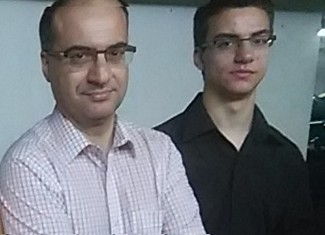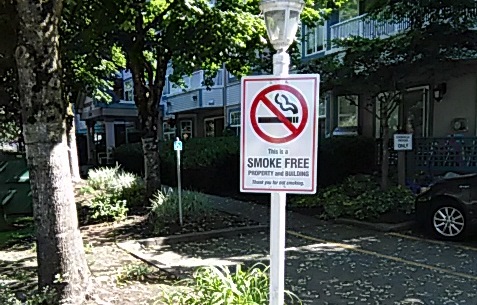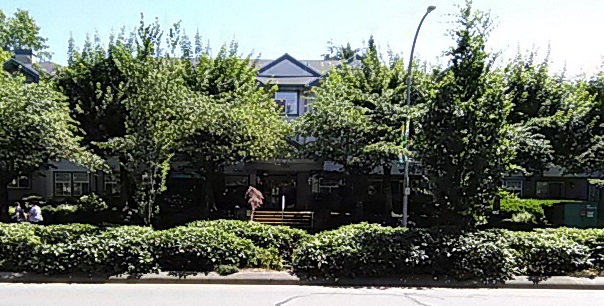Pitt Meadows father and condo owner wins protracted human rights battle to protect his family from second-hand smoke

“I had no idea a straightforward second-hand smoke issue between neighbours could turn into the battle it did. To this day I wish it could have been avoided – and we tried to,” said Paulo.
Paulo is one of many multi-unit housing residents who find themselves exhausting all avenues of support to resolve the increasingly common problem of drifting second-hand smoke – a known health hazard for which more and more people have little tolerance.
Before they bought their condo, Paulo’s family had endured serious challenges relating to their son’s health. What they didn’t see coming were continued health-related challenges in the form of neighbours who refused to refrain from smoking on their balcony.
“At first, I thought it would be a straightforward matter of talking with our neighbours and finding a compromise,” he continued, explaining the smoke was having very real health consequences for his son.
“We realized they may not have been aware of the impact of their smoking. So we were optimistic we could explain our situation and reach a compromise,” he continued. “In fact, I thought we had, but while they were initially considerate, the second-hand smoke problems continued.”
Next Paulo reached out to his Strata Council, but found after numerous discussions and letters, they too were unwilling to assume any responsibility and instead hired a lawyer to deal with the issue.
This left Paulo with very few options. He and his family were forced to keep their windows and balcony shut at all times, even in hot summer months. They also invested in air conditioners, and tried to seal off their unit, but smoke still got through, aggravating their son’s asthma and other existing health issues.
“The fact is, second-hand smoke is impossible to contain,” said Paulo. At this point, he and his family were forced to choose between legal action and moving out.
“I filed a human rights complaint. They can take months, even years, to process, but luckily just as we were beginning to lose hope, the Human Rights Tribunal contacted me and with their help, we forged a path toward resolution. It began with mediation, and ultimately led to the owners voting to make our complex 100% smoke-free.”
"Since the building has become smoke-free a lot of neighbours have approached me personally and thanked me for speaking up. Some were suffering from second-hand smoke issues in silence, afraid to say anything," added Paulo mentioning how valuable he found the smokefreehousingbc.ca website.
 |
 |
"Good info is out there. It's really important for Strata Councils to get better educated. If they don't, more will end up in drawn out battles like I did, needlessly spending Strata owner dollars on lawyers instead of working towards a rational solution."
“Thanks to Paulo’s perseverance, his story has a positive ending, but that is not always the case,” said Sharon Hammond, Manager of www.smokefreehousingbc.ca a resource, created by the health advocates, for residents and Strata Corporations exploring the idea of going smoke‐free.
“We hear from British Columbians on a daily basis desperately seeking help to reduce the smoke entering their homes and making their families sick. Some of these stories are heartbreaking, and there’s just no adequate laws to protect them from this hazard,” she added.
Unwanted exposure to toxic second-hand smoke in multi-unit housing has increased from 30 to 50 percent from 2008 to 2013, in spite of BC’s record low smoking rate (14.3 per cent). Current provincial law prohibits smoking in most public places, and in all residential building common areas, but do not apply within a private home, patio or balcony. Making more buildings smoke-free is the only way to effectively protect individuals and families from the risks of exposure to second-hand smoke, and ensure all residents are equally protected. That’s why we, the Clean Air Coalition, are encouraging the provincial government to take steps necessary to stimulate supply in BC.
Read our 2016 report and recommendations here.
JUNE 2016 WAS PROCLAIMED SMOKE-FREE MULTI-UNIT HOUSING MONTH BY THE PROVINCE OF BRITISH COLUMBIA
For easy‐to‐use info on how to implement a no‐smoking policy or bylaw visit: www.smokefreehousingbc.ca.


